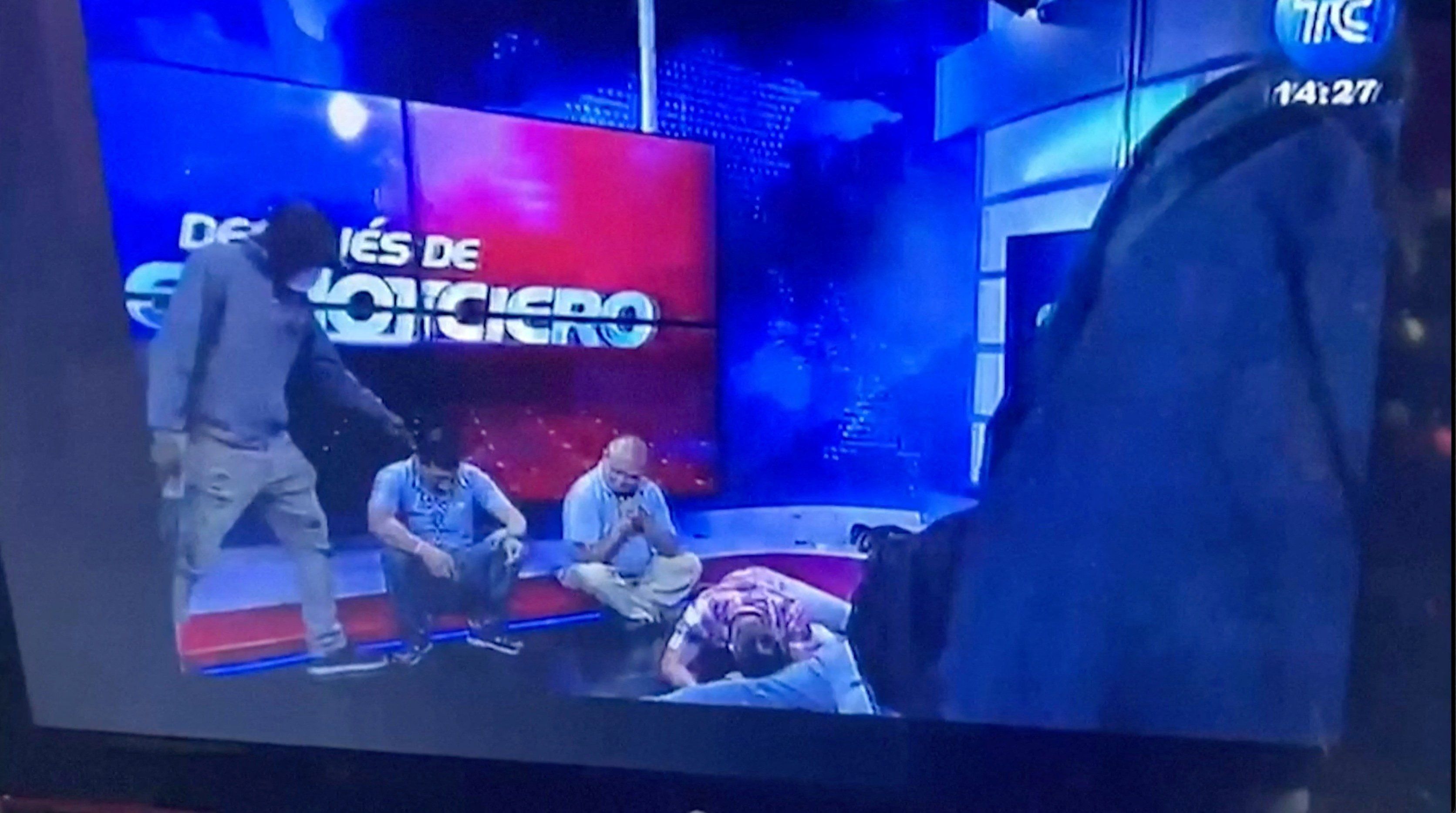Armed men burst into a TV station in the southwestern Ecuadorian city of Guayaquil on Tuesday, taking employees hostage. They forced producers and crew to kneel while threatening and beating them with guns live on air. Shots could be heard in the background before the feed died. Police surrounded the building and arrested 13 men, who will be charged with terrorism, and fortunately no one was killed.
Earlier in the day, armed men kidnapped at least seven police officers in separate incidents, and at least four cities reported explosions, possibly deliberate bombings.
The violence comes a day after new President Daniel Noboa issued a state of emergency in response to the presumed prison escape of criminal kingpin Jose Adolfo Macias. Minutes after the TV station was stormed, Noboa doubled down, issuing an executive decree declaring a state of “internal armed conflict” (our translation of “Conflicto Armado Interno”) and identified over a dozen criminal gangs his armed forces would now target and attack.
The situation is in flux, and it is far too early to prognosticate about Noboa’s future. That said, the chaos unleashed by the drug gangs is certain to make waves among voters in other Latin American countries like Chile and Costa Rica, where longstanding stability has been threatened by similar encroachment from drug smugglers and criminal gangs.
